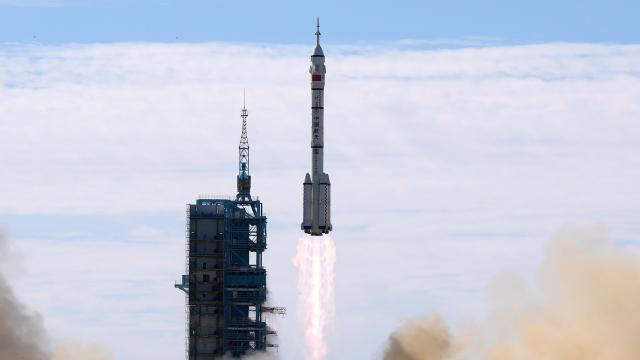In an effort to stifle Elon Musk’s Starlink, researchers in China are planning to launch their own fleet. The proposed megaconstellation has no set launch date, but is expected to consist of 12,992 satellites equipped with technologies to conduct surveillance on Starlink, among other capabilities.
According to the South China Morning Post, the constellation is codenamed “GW,” which likely refers to “Guowang,” citing professor Xu Can from the People’s Liberation Army’s Space Engineering University in Beijing. The China Satellite Network Group will take ownership over the constellation, which Xu and colleagues describe in a paper published on February 15 in the journal Command and Control Simulation.
There is no set launch or completion date for the Chinese constellation, but Xu says that the goal is for the GW network to be deployed before Starlink’s constellation is done.
A quick deployment of the Chinese constellation could prevent SpaceX from “hogging” Earth orbit, as SCMP writes. The researchers are also concerned that SpaceX might choose to weaponize its satellite constellation. So in addition to providing internet services, China’s proposed satellite fleet could spy on its rival and even disable individual Starlink satellites.
“The Starlink satellites may use their orbital manoeuvrability to actively hit and destroy nearby targets in space,” the researchers said, according to SCMP. Xu added that the Chinese effort would “ensure that our country has a place in low orbit and prevent the Starlink constellation from excessively pre-empting low-orbit resources.”
China’s efforts to get Guowang off the ground have been on the table for a few years now. As SpaceNews points out, China filed for 13,000 satellites with the International Telecommunication Union in Geneva in 2020. In 2021, Chinese capital city Beijing established the China Satellite Network Group, citing satellite internet as a crucial part of China’s infrastructure. This month, China Satellite Network Group signed an agreement with Shanghai, though the details of the specifics of the deal are unclear.
Those developments aside, papers like this are common amongst Chinese academics, and for the moment it remains exactly that — an idea sketched out on paper. Whether China has the means to launch something on this scale is another matter entirely (unlike SpaceX, China doesn’t have a reusable rocket like the Falcon 9, which largely enables the endeavour). Speaking of Falcon 9, Elon could simply launch more Starlinks should China decide to knock some of them out. Finally, there’s the important issue of how the world’s satellite operators will come to manage all this added space traffic.
Meanwhile, SpaceX has been steadily launching Starlinks to space since 2019, with the current number of operational units now at 3,639. The internet satellite network has connected some of the most remote parts of the globe and is officially available on all seven continents. While China Satellite Network Group, Starlink, and UK’s OneWeb battle it out for dominance of low Earth orbit, astronomers might be justifiably concerned about the amount of brightness these satellites could cause, in what is yet another issue.
